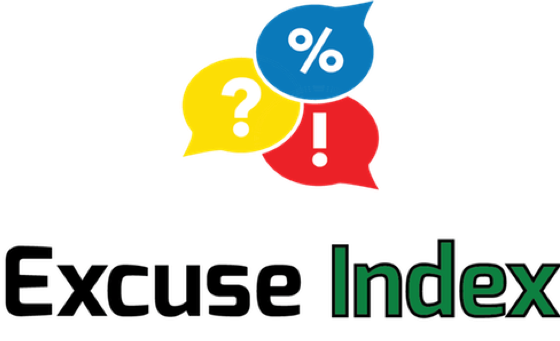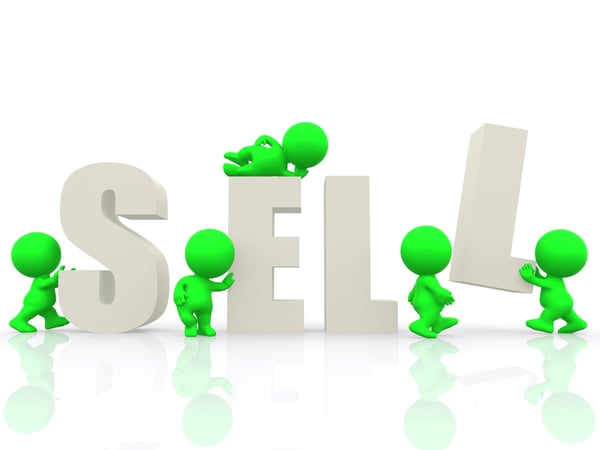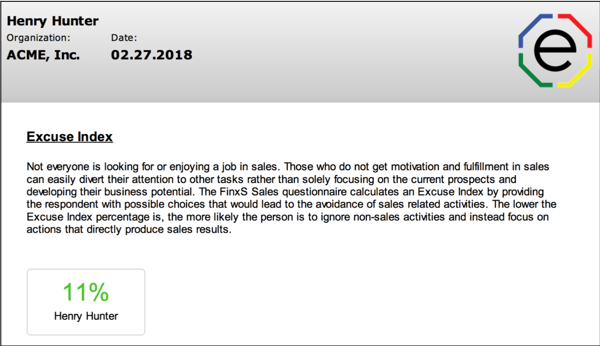How much time do you and your salespeople spend on sales related activities?
 The average Sales Excuse Index in the United States is 35%. It means that the average U.S. salesperson spends approximately 35% of their time on non-sales related activities. To put it another way, the same salesperson is spending, on average, 65% of their time directly on sales-related activities. The lower the Sales Excuse Index is, the more likely the person is to ignore non-sales activities and instead focus on actions that directly produce sales results.
The average Sales Excuse Index in the United States is 35%. It means that the average U.S. salesperson spends approximately 35% of their time on non-sales related activities. To put it another way, the same salesperson is spending, on average, 65% of their time directly on sales-related activities. The lower the Sales Excuse Index is, the more likely the person is to ignore non-sales activities and instead focus on actions that directly produce sales results.
However, this is just an average. The most successful sales professionals have much lower scores, while others score much higher. Where do your salespeople score?
Selling is a tough profession
 Not everyone thrives in a selling career. Selling is a tough profession; people are always trying to get ahead and find that competitive advantage to close the deal. Rejection is a common occurrence. Those who do not get motivation and fulfillment in sales may easily divert their attention to other tasks, rather than sticking to the sales process. They may not be making their prospects a focal point or they may not be developing their business potential.
Not everyone thrives in a selling career. Selling is a tough profession; people are always trying to get ahead and find that competitive advantage to close the deal. Rejection is a common occurrence. Those who do not get motivation and fulfillment in sales may easily divert their attention to other tasks, rather than sticking to the sales process. They may not be making their prospects a focal point or they may not be developing their business potential.
The Sales Excuse Index can help them recognize how much time they are, or are not, devoting to the sales process.
Sales Competence Assessment
 Oftentimes, salespeople look for ways to improve their performance and sales managers look for ways to improve their sales teams; however, they can become frustrated because they're unclear about how to further improve. The Sales Competence Assessment is a tool to measure salespersons’ competences in 18 critical areas for selling success. They also measure the salespersons’ Sales Mindsets to help identify specific roadblocks, such as self-defeating beliefs, to sales success, and to help create a very specific development plan. Ultimately, the Sales Competence Assessment provides practical and clear information to create a road map to success by assessing a salesperson's sales competence, sales mindset, and Sales Excuse Index. Let's focus in on the Sales Excuse Index.
Oftentimes, salespeople look for ways to improve their performance and sales managers look for ways to improve their sales teams; however, they can become frustrated because they're unclear about how to further improve. The Sales Competence Assessment is a tool to measure salespersons’ competences in 18 critical areas for selling success. They also measure the salespersons’ Sales Mindsets to help identify specific roadblocks, such as self-defeating beliefs, to sales success, and to help create a very specific development plan. Ultimately, the Sales Competence Assessment provides practical and clear information to create a road map to success by assessing a salesperson's sales competence, sales mindset, and Sales Excuse Index. Let's focus in on the Sales Excuse Index.
How to measure your Sales Excuse Index

The Sales Excuse Index measures a salesperson’s current likelihood to find excuses for not engaging in sales activities. It is calculated by providing respondents with possible choices that would lead to the avoidance of sales related activities. The lower the percentage, the more likely they are focusing on current prospects and developing their business potential. They will ignore non-sales activities and instead, focus on actions that directly produce sales results.
In the example above, Henry Hunter has a Sales Excuse Index of 11%. It means that Henry spends 11% of his time on non-sales related activities and 89% of his time directly on the sales process.
You can calculate the average Sales Excuse Index for your sales team to determine if clarifying goals and additional training is needed. Now, you have a clear and simple way to identify how much time and energy is devoted to the sales process to make decisions on how to develop further. So, what's your Sales Excuse Index?

